Or rambling in print.
I'm working on a story with a main character of indeterminate gender. That's not what I really mean though. What I mean is that the audience for hir performance and the reader will never know what gender ze is, but that makes use of the idea that there are two genders. I don't believe in that. I think gender is a lazy classification for people who like things black and white. If it were so cut and dried (I cringe at that), why are so many babies assigned a gender at birth and then forced into Box M of box F via medical mutilation of non-conforming genitalia?
Back when society had a great interest in determining if your were a ruling class male (a human worthy of rights) or a not ruling class or not male (property), I can see why people would be anxious to determine where you fit in the strata and so you didn't get your hands onto any rights you weren't entitled to. The upper echelon had a vested interest in keeping the club exclusive. I'm not saying it's right, but I understand their thinking. It was the entire basis for their civilization.
Now that those privileges have been extended to everyone in theory, I can't understand why society clings so tenaciously to the male/ not male determination. Sure, it makes things so easy for society, but it rides roughshod over the individual. (I've come to the conclusion that what's good for society is usually fatal to the individual.)
So what is all this rambling about? I'm torn about writing a piece that reinforces the idea that Ze must be male or female. Ze is hir own person. Ze transcends bi-genderism. At least, that's the character I'd like to create. It would be wonderful if I knew I could prod readers into thinking outside the M and F boxes, but that's an awful lot to ask of a short story without getting preachy.
I don't mind being prodded to examine ideas, and I love being shaken out of lazy thinking habits, but I draw the line at lectures. Lectures berate people for their modes of thought, but should people be ridiculed simply because they'd never imagined that there were other ways of viewing the world? I don't think so. Besides, most lectures (sermons) tell people what to think and feel instead of opening up an internal or external dialog.
For me, the challenge is to show that between points M and F on the graph of gender, there isn't just empty space. There's a continuum. All I want to do is open up that line of thinking and then have enough faith in people to let them explore the idea at their own pace.
That assumes people give as much thought to gender as I do.
Maybe Ze will make at least one reader pause for a second over those M and F boxes the next time she/he/ze fills out a form and wonder why it matters to anyone what gender she/he/hir is. I hope so.
(For the record, I haven't checked a gender box in years. No one seems to notice.)
Tuesday, March 18, 2008
Subscribe to:
Post Comments (Atom)










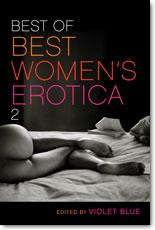

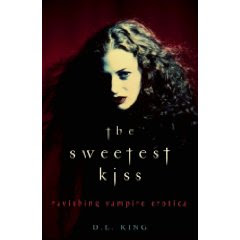


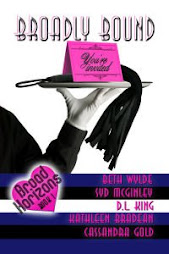.jpg)
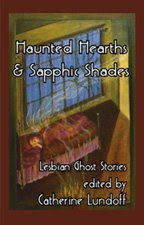

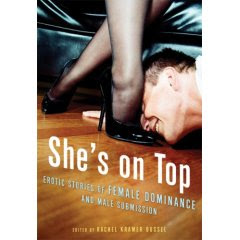








3 comments:
Pat Califia has written stories where the gender isn't M or F. i think you should go for it. i don't think it's about lecturing to readers, but i think it's true that some readers won't understand. so what? you can't write for everyone. what about those who would love to read more stories of the type you are describing. there are possibilities here. i think you should go for it.
Thanks for the support. You've inspired me to stop worrying and just write.
One of the things I've learned from workshopping stories on ERWA is that readers extract meaning from stories that the writer never intended or expected. So I'll stick to presenting my characters and telling my story and trust people to walk away with their own ideas about why some people in the audience want to determine Ze's gender and define it in binary terms. Or they can walk away from it thinking it was just a hot little tale with strange characters. It's up to them. Have to trust the readers. That's my mantra on this one.
i look forward to reading the story!
Post a Comment